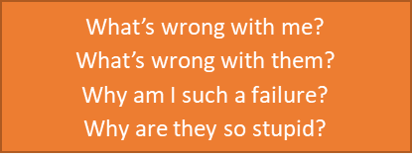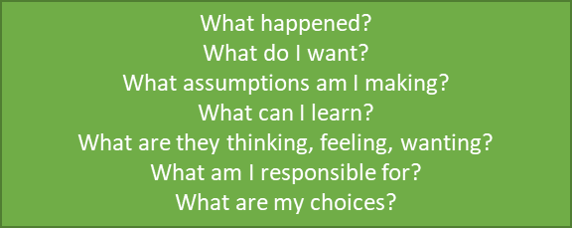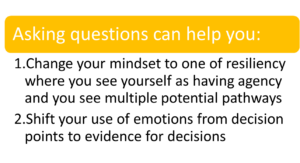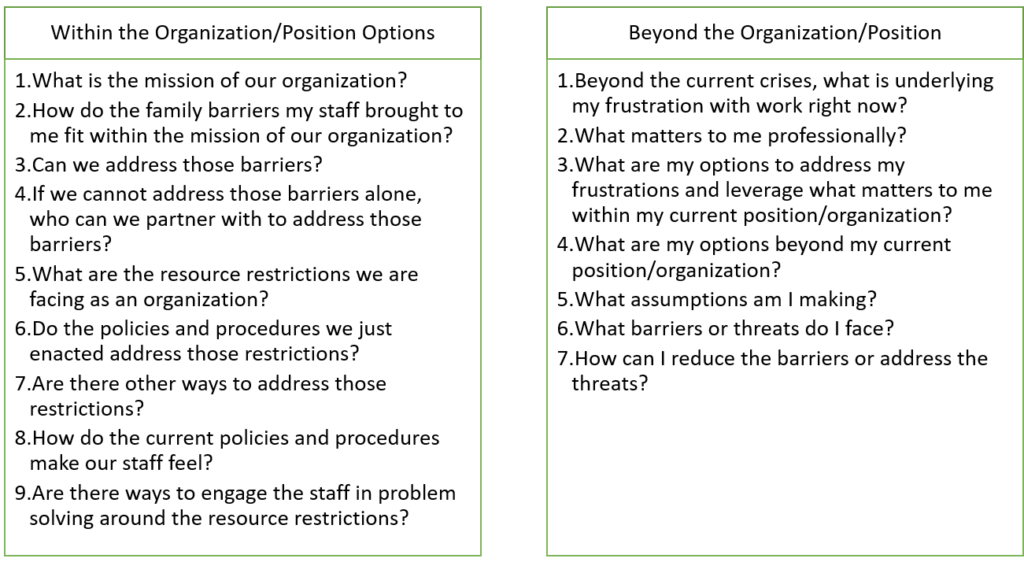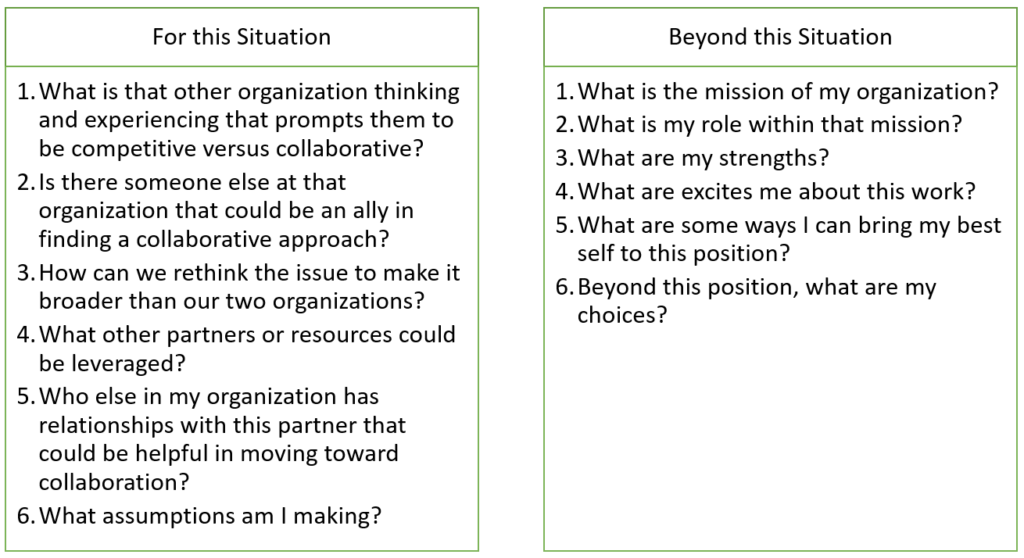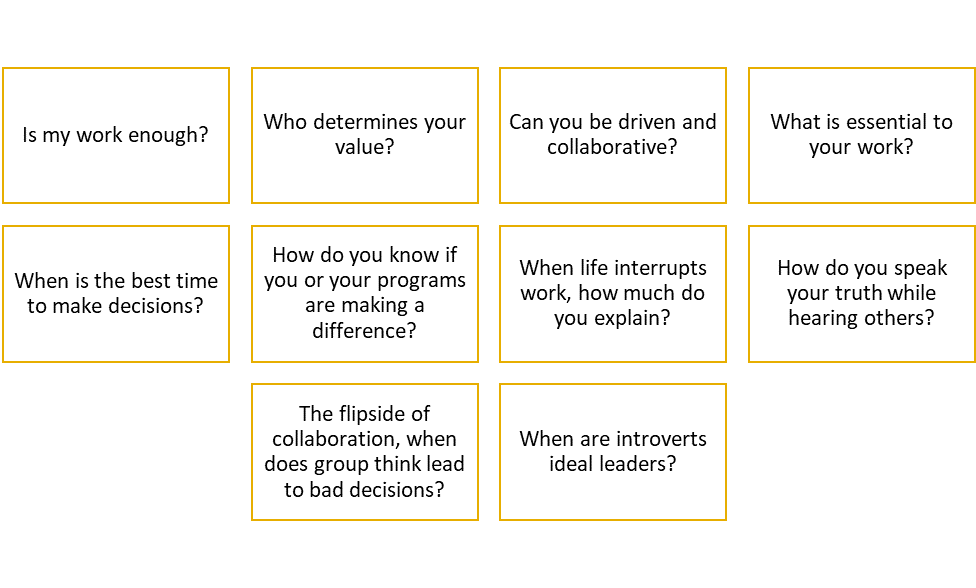Last week we explored that place where all of us find ourselves from time to time. Stuck. Have you found yourself stuck in a mindset; reviewing the same insufficient options; worried or scared you will make the wrong decision? We have all felt stuck from time to time. When we are stuck, we have a tendency to point negative energy inward, outward, or both.
Mariliee Adams suggests in Change Your Questions Change Your Life, approaching issues from an inquiry mindset. In other words, rather than judging others or ourselves, what questions can we ask that help us to see the learning opportunities in even a bad situation? Marilee Adams suggestions we avoid questions like:
And ask questions more like:
These questions can be used for both small and large decisions. For a day-to-day staffing issue, the difference may look like this:
Initial Reaction
- What the hell is happening right now with Sally?
- Why is it so hard to communicate with her?
- How am I going to get her to follow through on the tasks I assigned?
- Is she purposely trying to sabotage the project?
- Am I just not able to give direction?
- Is it possible that I am not ready to manage someone else?
- Do I have what it takes for this project?
- Does Sally know something I don’t know?
Take a look at the list of questions above, how does the list make you feel? Notice your physiological reaction. Is your breath quick? Is your chest tight? How is your posture when you are reading those questions?
More Positively Worded Questions
- What assumptions am I making about Sally and my relationship?
- What is Sally feeling or thinking?
- What am I feeling or thinking?
- What are the goals of the project?
- What are the tasks that would help us meet those goals?
- Are there other ways to approach the project?
- What are Sally’s strengths?
- How can I match Sally’s strengths to the goals and tasks of the project?
How does the second list make you feel? Is your breath slower, Is your heart rate slower? How is your posture?
So how about for the quandary posed last week: Is it bad that I can’t think of three things that get me up in the morning professionally? If this question resonated with you, you are not alone. If you wonder if you picked the right field, the right organization, the right role, you are not alone.
Questions to ask to shift your mindset
For my client who faced the double whammy of feeling overwhelmed by the barriers to meeting client needs and undervalued by staff, the questions he asked made a big difference in his ability to see ways to address the issues in front of him and explore other possible ventures. He asked himself questions such as:
This is where emotions are evidence. If you do not feel inspired and motivated by the questions you brainstorm to solve the issue at hand but you are inspired and motivated by the questions that have you looking beyond your current position, you may be ready for a change.
For my other client, where anger and battle were her go-to emotions, she asked herself:
Think of a situation you are facing right now at work. It can be large or small. Take 10 minutes this week to pour yourself a cup of your favorite beverage. Make a list of questions you have about that situation.
What Matters Question Worksheet
Now mark those questions as positive or negative. If you noticed that you have mostly (or completely) negatively worded questions, look above for some of Marilee Adam’s inspired learner-based questions to add more positively word questions to your list.
For the next week, practice asking questions. Set them aside and revisit them. When you are satisfied that they are helpful questions, take some time to answer them. Next Monday, we will add observation and data collection to help us get unstuck and determine What Matters.

